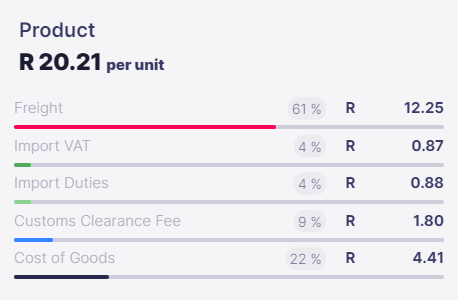
Amazon VS Temu & Shein: How the Battle Affects Local Sellers
Amazon VS Temu & Shein: How the Battle Affects Local Sellers 2024 may go down as the year South Africa opened its gates to the

This article explores sustainable business practices that small business owners can implement to benefit the planet and their bottom line.
Earth Day is almost upon us, folks, and you know what that means – the social media eco-warriors are about to come out in full force. You know the drill: #savetheplanet hashtags flooding your feed, posts about plastic straws, and suddenly everyone is a self-proclaimed environmentalist. But let’s be honest, what about the other 364 days of the year?
As a small business owner, you have a unique opportunity to contribute positively to the environment year-round. Not only will you be doing your part for the planet, but you may also see a boost in your bottom line. So, let’s dive into some sustainable business practices that can help make a lasting difference, not just on Earth Day, but every day.
It’s 2023, and if you’re still not on board with sustainable business practices, you’re way behind the times. The phrase “green is the new black” has been thrown around for years, but it’s never been more relevant than it is now. Consumers are more environmentally conscious than ever before, and they’re looking for businesses that share their values.
Everywhere you look, people are making efforts to reduce their environmental footprint. As a small business owner, it’s essential to recognise this trend and take steps to align your business practices with this growing movement.
You are what you eat, and your business is what you sell. So, be mindful of the products you’re importing. Are they ethically sourced? Are they eco-friendly? Are they made from sustainable materials? These are all questions you should be asking yourself before making any purchases.
And while we’re on the topic, let’s talk about shipping.
If you’re sourcing your products from China (or anywhere else, for that matter), you’re likely aware that the shipping process can rack up quite the carbon footprint. But wait, you might be thinking, “I can’t just stop importing goods. My business depends on it.” And you’re right. So, what can you do? Well, that’s where Airpool comes in.
Our innovative shipping service consolidates orders effectively, leading to a reduced carbon footprint. By combining multiple shipments into one, we’re able to optimise the use of cargo space, which in turn reduces the number of flights needed to transport goods. This means lower emissions and a more sustainable shipping option. So, if you want to reduce your environmental impact and save money on shipping, Airpool is the way to go!
Excessive packaging not only contributes to waste, but it also adds to the weight of your shipment, increasing the carbon footprint of your transportation. So, consider using minimal packaging, or even better, packaging that is recyclable or biodegradable.
If you’re shipping fragile items, consider using eco-friendly packaging materials like mushroom packaging, which is made from agricultural waste and is fully compostable.
If you’re still clinging to your pen and paper for invoices, receipts, and bills, it’s time to join the digital revolution. Leveraging technology is a win-win situation. You’re helping the environment while streamlining your business operations and saving some money on the side. And if you need one more reason to go digital, think about all the extra space you’ll have when you no longer need to store piles of paper. It’s a no-brainer, really!
As a small business owner, it’s easy to feel like your actions don’t have a big impact. But the truth is, every small change we make adds up to make a big difference. By implementing sustainable business practices, you can reduce your impact on the planet while also saving money and attracting eco-conscious customers. And with options like Airpool, reducing your carbon footprint has never been easier.
Why settle for subpar shipping when you can have both speed and sustainability? At Airpool, we’re committed to helping you ship smarter, not harder. Get in touch with us to find out more.

Amazon VS Temu & Shein: How the Battle Affects Local Sellers 2024 may go down as the year South Africa opened its gates to the

Don’t Wait Around Any Longer: Get Ready for your First Import in 7 Steps Standing in line at Home Affairs. Waiting for the power to

Navigating Customs: How a Shipping Company Simplifies the China-South Africa Import Process When it comes to finding a wide range of products, China is often

The Importance of Swift Shipping in the Age of Instant Gratification We all know how it feels to eagerly await a package, tracking its every
Landed cost is the sum of all expenses associated with importing your goods from China to South Africa. This includes the cost of the goods paid to your supplier, the shipping costs, clearance costs and the import taxes & duties.
It is represented on a per unit cost and helps you with:
Note: This is not what you are paying to Airpool but rather what you are paying to all the suppliers and relevant parties: Airpool, the Manufacturer of the goods and the Import Taxes (VAT & Duties)
